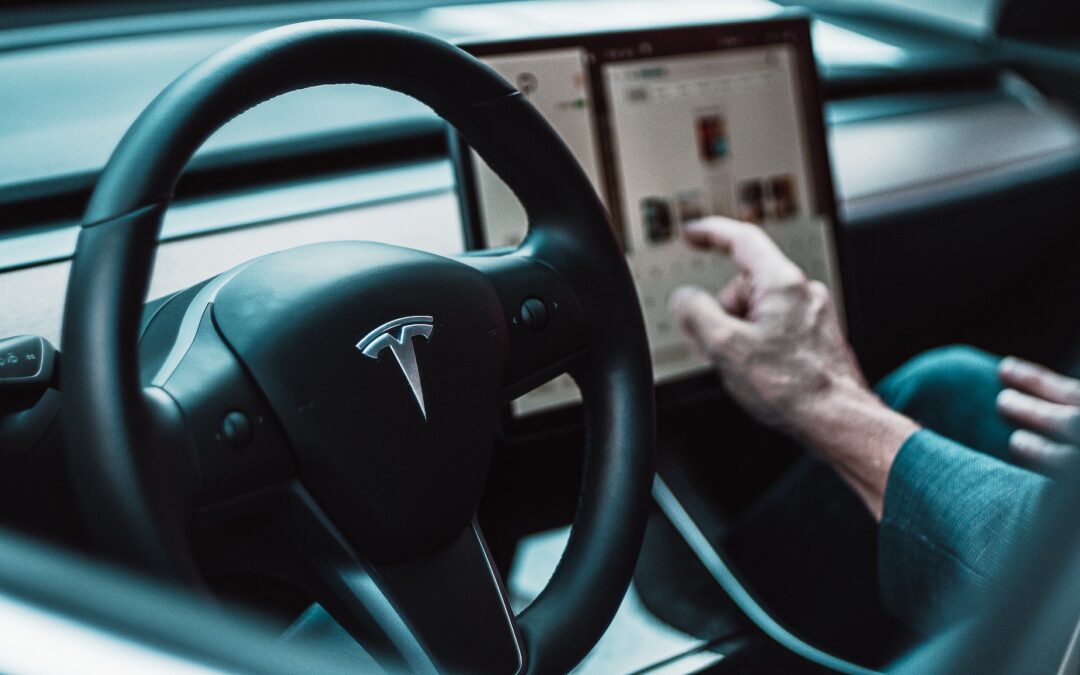The car industry, like many others, is collecting more and more data, which is being captured by innovative devices. This is also the case with Tesla's electric vehicles. What the drivers usually do not expect: Tesla passes this data on to authorities upon request. You can find out exactly what this involves here.
What data is collected?
The manufacturer Tesla offers its customers more and more convenience and safety via integrated cameras and additional functions via mobile communications. At least that's what the manufacturer advertises. Not only is the vehicle's internal data, such as speed, acceleration and braking, recorded, but many cameras and sensors also record what happens outside the vehicle and therefore also who is driving in the immediate vicinity.
Even when parked, Tesla vehicles record (Sentry mode).
The interior of the vehicle also contains cameras and microphones, so it is not necessarily advisable to process information with a high or very high protection requirement in the vehicle, e.g., through conversations in the interior.
This data is collected by the vehicle, analyzed for appropriate responses on the road, and may be stored in the manufacturer's own cloudThe vehicles are also cloud participants / mobile data storage (in the sense of a mobile USB hard drive with remote access) that Tesla can access at any time. Tesla itself sees the vehicles as its own network participants in the Tesla network and tracks activities on the vehicle >>>. https://de.lookout.com/blog/hacking-a-tesla
When does a transfer of this data take place?
At the request of the authorities, Tesla releases this data - supposedly without the separate consent of the vehicle owner.
The authorities usually use it to solve accidents in which there were no witnesses. For example, the vehicle data can be used to determine the position of the pedal at a particular time, whether the vehicle was accelerating or braking, or how fast it was traveling. Access to videos or images of the situation at the time of the accident can also be helpful in clarifying the course of events.
The data not only helps to identify the perpetrator of a hit-and-run, but also to exonerate the perpetrator if necessary.
If there is no other evidence, the authorities have a special interest in accessing the data stored by Tesla.
Is the collection compliant with data protection?
This raises the question of whether the collection of all this data complies with data protection in the sense of the GDPR. It should be noted here that, on the one hand, the vehicle owner and driver as well as third parties involved in the traffic are affected.
Insofar as the vehicle owner is concerned, he or she has consented to this recording by purchasing a vehicle that records the driving situation by means of extensive data. If the purpose of the data collection is also listed in the relevant data protection regulations, the recording is permitted.
Obtaining appropriate consent with full transparency from each driver/user of the Tesla under your responsibility is advised.
The vehicle owner can also refuse this consent at the time of purchase or revoke it subsequently. Tesla itself admits that the corresponding settings and data protection provisions can be customized at any time. At the same time, however, the manufacturer also mentions that "limited functionality, serious damage or inoperability may occur" when refusing data collection. Thus, in practice, there is hardly any possibility of co-design by the vehicle owner who does not want to exclude the advertised comfort. The voluntary nature of this consent is therefore more than questionable.
Third parties involved in the traffic, on the other hand, have not consented. This is an unauthorized recording of natural persons in public spaces, which violates applicable data protection law.
What (potential) owners and buyers should pay attention to
Before making a purchase, it is important to understand in detail what data will be collected and what collection, if any, you want to exclude before any disclosure with which you did not agree.
Even if the purchase was made some time ago, you can always think about a possible revocation of consent.
